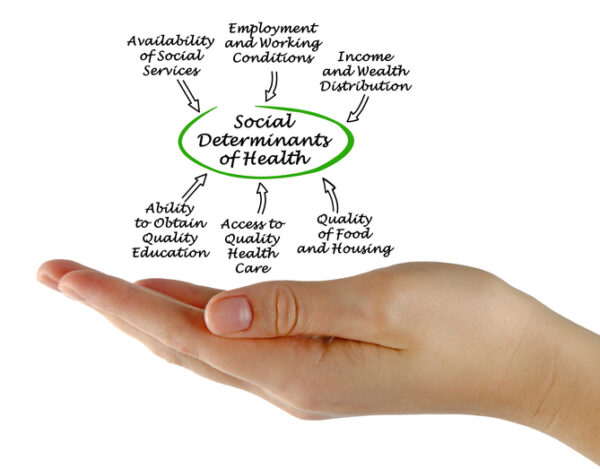
A national survey conducted by Kaiser Permanente found that patients overwhelmingly are looking for providers to play a key role in identifying and addressing social determinants of health.
The survey, which included around 1,000 American adults, found that 68 percent of respondents had least one unmet social need and one-third reported they were experiencing stress related to finding access to stable housing, adequate food, reliable transportation or other social support needs.

What Are Healthcare Organizations Getting Wrong about Email Security?
A new report by Paubox calls for healthcare IT leaders to dispose of outdated assumptions about email security and address the challenges of evolving cybersecurity threats.
A majority of Americans believe that stable housing, balanced meals, reliable transportation and supportive social relationships are important to overall health and 42 percent said they would turn to medical providers for info on community resources.
The struggle to meet these social needs are also related to the ability to access and afford healthcare. Survey respondents reported that housing and food costs make up more than half of the budget, whereas healthcare makes up 9 percent of the budget.
Only 44 percent of survey respondents said they could cover a $500 emergency expense from an emergency fund or their cash on hand.
This in turn leads to health risks tied to unmet social needs with 28 percent of Americans reporting a barrier to health due to a social need ranging from paying for food or rent over medication to the inability to see a doctor regularly due to an unstable housing situation.

Solving Healthcare’s Provider Data Problem Starts with Interoperability
Break down the silos. Take control of your provider data.
Eighty percent of respondents said they would find it helpful for a provider to share information or recommend specific resources and help with follow up and application if they or a family member were in need.
Regardless of whether they currently facing an unmet social need, survey respondents felt that providers should ask about access to food and meals (93 percent), safe and stable housing (83 percent), social relationships and isolation (78 percent) and transportation needs (77 percent).
A majority of respondents – 51 percent – said they would feel supported if asked about the aforementioned social needs, while only 10 percent reported they would feel annoyed or nervous if their provider took that action.
Kaiser Permanente has made social determinants of health a key priority of their “total health” strategy which aims to address physical, mental and community health.
Among the steps the health system has taken over the past year have been investments and partnerships with real estate developers and nonprofits to build and preserve affordable housing and tackle homelessness.
Last month, the Oakland, California-based managed care organization announced Thrive Local, a network of social and community services being integrated into Kaiser’s internal EHR and care plans.
Thrive Local is slated to start rolling out in the summer and will be expanded to Kaiser’s entire service area over the next three years.
As part of the program, Kaiser will also offer the software resources to private, public and nonprofit community-based organizations to help magnify their impact to a broader population.
“We must ensure individuals have access to the health and social services they need to be well,” Kaiser Permanente Chief Community Health Officer Bechara Choucair said in a statement.
“When we ask our members if they’ve had to skip a meal lately, if they can afford their medications, or if they have reliable transportation, we know the answers to those questions can tell us as much about their future health as their blood pressure tells us. When we can prevent negative health outcomes with access to social services, we can make our communities healthier for the 68 million people living there.”
Photo: vaeenma, Getty Images






